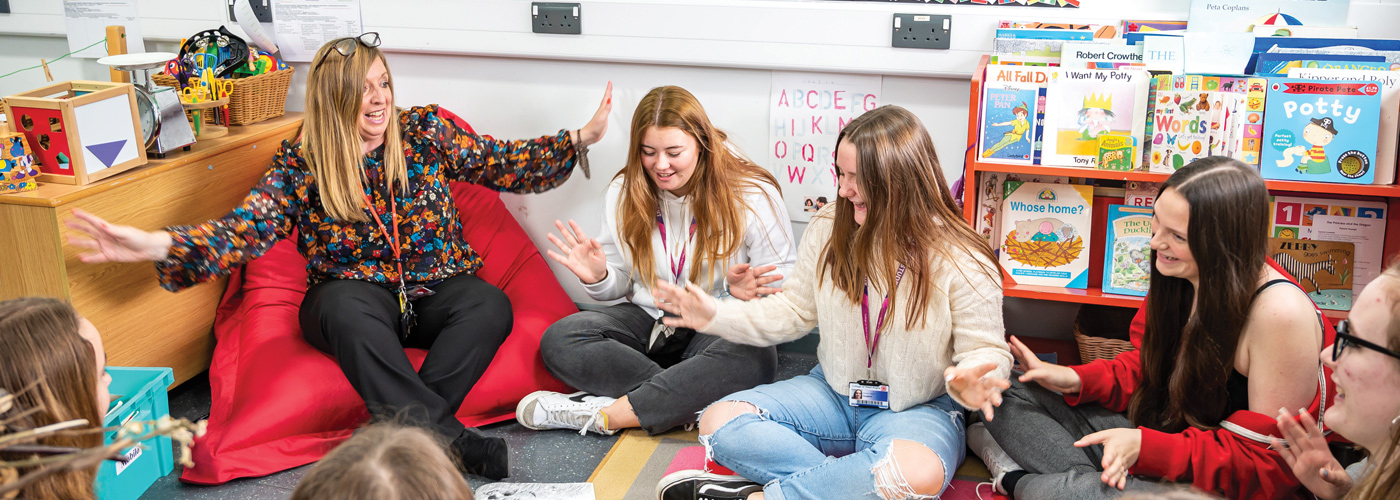If you want to know how to break the ice and make a good impression in a new situation, then this is the guide for you. Whether you’re attending a networking event, starting a new college course, feeling nervous about your first day at a new job, or going to any number of social engagements where you’ll be meeting new people, read on.
Why do we feel anxious in new situations?
First of all, feeling anxious in a new situation is completely normal, so don’t feel as if you're the only one in the room wondering how they’re going to start a conversation with a stranger.
The author, Keith Rollag, explains that this is because humans have naturally evolved to fear the unknown. In prehistoric times, it made more sense for humans to act anxiously in new situations, as any strangers we encountered were likely to want to steal from us or harm us. As humans have evolved, we have retained this distrust, which has been enforced by our upbringings, for example, being constantly warned to be wary of talking to strangers.
At the same time, humans have a fear of being excluded from groups. Humans are a social species, which means we have learned through evolution that it is safer and more successful to be part of a community or group. This longing for inclusion is still present in humans today.
Humans have been left with this natural paradoxical anxiety in new situations - we are wary of strangers, yet at the same time we want to fit in.
So, what can we do about it?

How to change your mindset
According to Rollag, the best way to reduce anxiety in new situations is to begin thinking about them as opportunities to learn.
There are three ways to do this:
- Coach mindset - start to think of new situations as purely training exercises where you can practice and get feedback
- Gamer mindset - start thinking of new situations as like social video games where you can improve each time you play and move up the levels. It’s okay to fail, because you can just reboot the game and try again
- Beginner’s mindset - start walking into new situations feeling excited because you’re about to learn or try something new
How to introduce yourself
The author suggests that the best way to overcome worries about introducing yourself is to follow a strategy.
- Greet them
- If appropriate, ask them if they’ve got a moment so you can introduce yourself, to ensure you’re not interrupting anything important
- Say who you are and why you’re introducing yourself - establish why you should know each other
- Keep it brief and respectful
- If appropriate, you can follow up with a longer chat which will establish the basis of the relationship
- Ask lots of questions and be engaged
- Remember their name
Useful name recall strategies to remember names
- Imagine the person is standing next to a friend of yours with the same name, and remember them together
- Imagine the person’s name written across their face
- Repeat their name during the conversation, such as saying: “Hello Joe, nice to meet you.”
Chatting
The author suggests a few ways in which you can successfully navigate that first chat. The goal is to find out what you have in common and how you can connect in future.
- Ask lots of questions - people like to feel understood, or that you’re trying to understand them
- Talking about yourself too much tends to sap energy from the other person, so keep it balanced
- Be positive and energetic and focus on giving energy to others, rather than trying to get what you can for yourself out of the interaction
Take notes
It may seem strange, but this is a great technique when you're getting to know someone for the first time, especially at a networking event, or at work. Take notes after the conversation though, not during, as this does look strange. You’ll want to remember things like names, background and anything you want to talk about again in the future, things that can sometimes be forgotten in the moment. It’s a simple trick to jot these down on your phone when you have a moment.
Key takeaways
The key takeaways from this book are that in new interactions it’s normal to feel anxious and you should remember to treat it as a learning experience. Remember that healthy relationships are all about reciprocal altruism - this means that if you give energy to others by focusing on them and trying to understand them, they are likely to want to return the favour. Focusing on the other person may also help you feel less anxious, as you’re not focusing on yourself as much.
See our previous book reviews here: https://www.cwa.ac.uk/alumni/news




